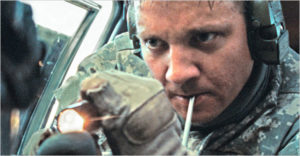 As a rule, Keep your mouth shut works almost everywhere. Most things get worse when we speak.
As a rule, Keep your mouth shut works almost everywhere. Most things get worse when we speak.
However, silence can cause trouble, too. Even a pause can be deadly:
Who do you love most: me, or my sister?
Mom, was I a surprise pregnancy?
If we want safety, silence offers the best protection. It makes sense to hide and keep really quiet, when danger prowls – but not for leaders.
Doctors must lead. And leaders need to speak; precisely when everyone else is sliding down in their seats around the table.
Leaders must say something, even when there is nothing perfect to offer. Silence does nothing for a team. But we have to be careful, too: empty platitudes can come across like ‘Get Well’ cards at a funeral.
Medical Politics Thriller
If this were a spy thriller, Ontario sits at the point in the story when a bomb has just been found under the parliament buildings.
Helicopters circle. People run around screaming, and a sweating bomb tech, in safety gear, extends a shaking set of snips towards a jumble of wires.
Will he cut the blue wire…or the red one?
If you Google crisis + leadership, millions of results pop up like:
- How a Good Leader Reacts to a Crisis
- Leadership in Crisis – How to be a Leaders
- 7 Tips on How to Be a Great Leader During a Crisis
- 11 Tips to Leading During a Time of Crisis
These offer great advice. But doctors need something a bit different.
In Ontario, leaders have stepped forward from all sides: within the establishment, without, and in between. For all leaders, here are 7 tips:
Crisis Management for Doctors
1) Be cool – Lighting our hair on fire comes naturally for some. The heat and smoke releases energy and feels good, I suppose. Resist the urge, no matter how much better it makes you feel.
Everyone who looks to your reaction feels much worse when you lose control, even with an audience of one.
2) Avoid the simplistic – Us against them wins on a football field, but not with large groups. Black and white works well until kindergarten.
Oversimplifying complexity might seem to add sanity for a moment, but it never leads us out of a crisis.
3) Keep making friends – Fights during Thanksgiving dinner often leave deep, irreparable scars. Remember whom you are fighting with.
You may need to see them for your heart attack next week.
4) Forgive more – People make dozens of mistakes every hour, at their best. Under duress, we make many more. Itemized lists of all the ways other people messed up, acted poorly, or otherwise disappointed us rule out reconciliation.
Do not assume maleficence, when ignorance explains behaviour well enough.
5) Plan for the future – Force yourself to imagine life after this crisis has past. Even if things do not work out in your favour, this crisis, too, shall pass.
Your response will shape your experience of life afterwards.
6) Stop and think – Surviving the next minute blocks out all other thought in a crisis. We need more time to reflect, at the exact moment when there isn’t time to breath.
Stop. Think. Take 10 minutes to read. Pseudo-dementia comes from cognitive overload.
7) Remain positive – I think it was Dee Hock, founder and CEO of Visa, who said something like, “The times are too tough, and the outlook too dire, for negativity.”
We need hope the most, when hope seems most unreasonable.
Crisis and Silence
Trauma and crises are not all bad. Birth is traumatic, violent even. Full lives have very few dull moments. Dreams of peace and quiet come true only for the most heavily sedated, on locked wards.
The excitement in Ontario will pass, eventually. We will go back to working together, sharing patients, and finding ways to work with others to improve our healthcare system. But during a crisis, many people find it safer to clam up and keep silent.
We need people to offer reasons for hope, no matter which direction this turns. Silence is not an option in crisis management.
Photo credit: The Hurt Locker


